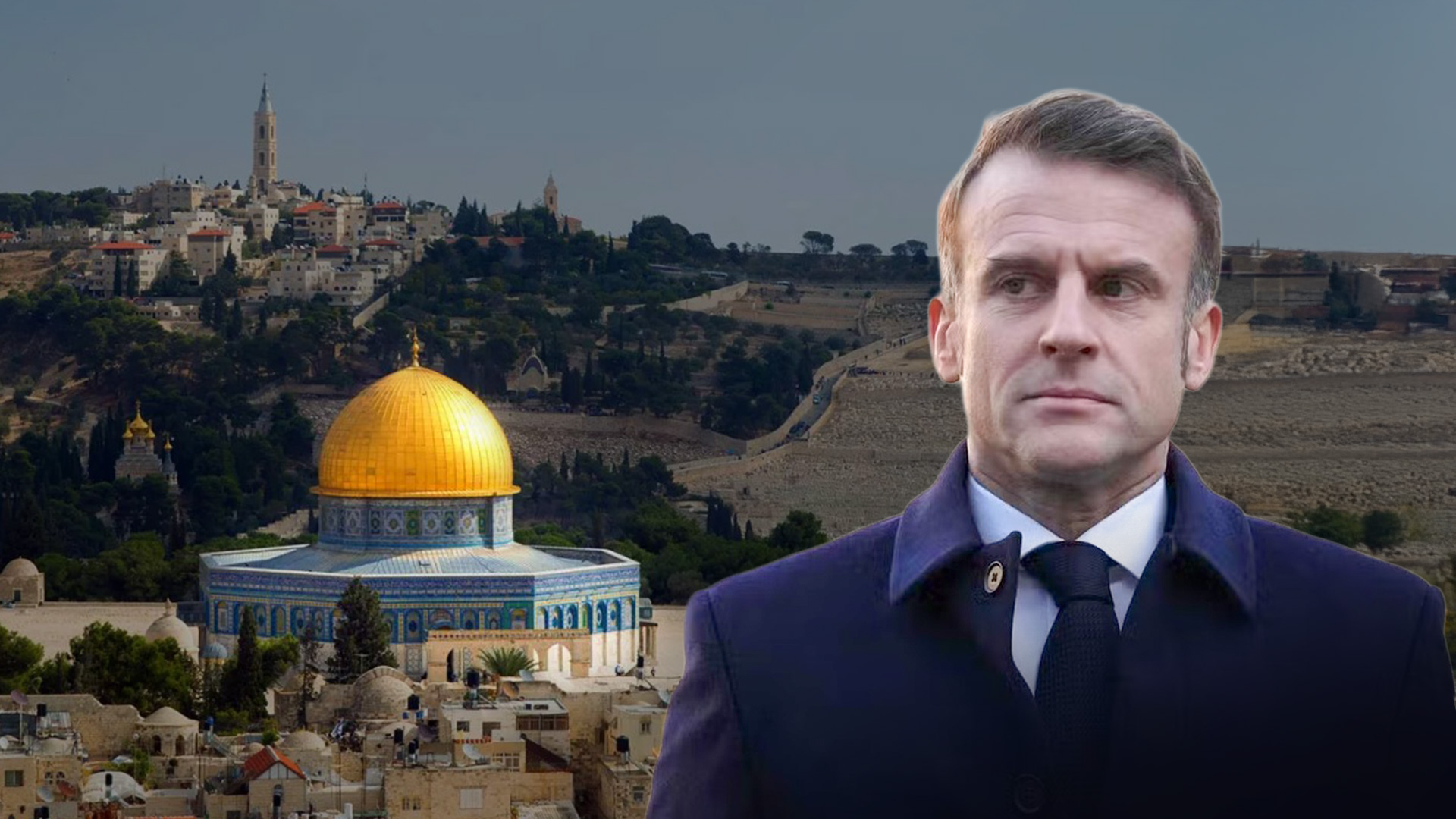Macron’s Recognition of Palestinian State Sparks Diplomatic Shockwaves and Israeli Backlash
Macron Faces Domestic Backlash as France’s Jewish Community Questions Timing of Palestinian Recognition

ERBIL (Kurdistan24) — French President Emmanuel Macron’s pledge to officially recognize a Palestinian state has been hailed as a diplomatic breakthrough but also risks provoking sharp retaliation from Israel while offering limited immediate benefits to the Palestinians, according to diplomats who talked to AFP.
Macron announced the decision during a speech in New York on the sidelines of the UN General Assembly, sending ripples through the international community. The move, the Elysee Palace said, will be matched by nine other countries, including Australia, Belgium, Canada, and the UK.
If carried out, the step would mark a historic precedent: France and the UK would become the first permanent UN Security Council members to recognize Palestine, and along with Canada, the first G7 states to do so.
The recognition reflects mounting global frustration with Israel’s military campaign and aid blockade in Gaza—measures seen, at least by Israel and the United States as a legitimate response to Hamas’s October 7, 2023, atrocities against Israeli civilians—yet the decision by several European and Western powers to recognize a Palestinian state marks a rare and unexpected departure from their long-standing support for Israel against regional Arab threats.
Experts suggest this shift is also rooted in strained transatlantic relations under Donald Trump’s presidency, as Washington pressured European allies to boost NATO spending, imposed tariffs on their exports, and cut funding to the UN and other international bodies, prompting some capitals to assert themselves by adopting tougher positions toward Israel, one of America’s closest allies in the Middle East.
“This recognition is not the end of our diplomatic efforts. It is not a symbolic recognition. It is part of a broader and very concrete action,” French foreign ministry spokesman Pascal Confavreux said, citing the French-Saudi roadmap designed to accompany the move.
Macron, defending his stance on Israeli television, argued it was “the best way to isolate Hamas.”
Still, the French leader faces political challenges at home, including concerns from France’s Jewish community, many of whom view the timing as ill-judged. Macron has sought to reassure them, vowing stronger action against antisemitism in the aftermath of Hamas’s attack.
Potential Israeli Retaliation
Diplomats from both sides expect reprisals, though not a full break in relations. Israeli Prime Minister Benjamin Netanyahu could close France’s Jerusalem consulate, widely used by Palestinians, or even escalate by annexing parts of the West Bank — a move Paris views as a “clear red line.”
“There is going to be a lot of noise,” one diplomat said, while analyst Agnes Levallois of the Institute for Research and Study of the Mediterranean and Middle East warned that Palestinians could ultimately “have the most to lose” unless recognition is paired with sanctions on Israel.
The United States has strongly opposed Macron’s move. Washington’s ambassador to Paris, Charles Kushner, condemned what he called “unmet French conditions,” while Israel’s envoy to France, Joshua Zarka, told AFP recognition without prerequisites would “complicate the situation on the ground rather than advance peace.”
Palestinian envoy Hala Abou Hassira welcomed France’s decision but urged Paris to take further steps, including sanctions and an arms embargo on Israel.
A Bid for Legacy
For Macron, politically embattled at home amid rising domestic unrest and facing criticism over economic and social reforms, the recognition of a Palestinian state represents more than a foreign policy maneuver—it is a strategic effort to secure a lasting diplomatic legacy.
With limited progress on resolving the war in Ukraine and a complex European security landscape, the move allows Macron to assert France’s independent voice on the global stage while leveraging it as a subtle instrument of pressure on Israeli Prime Minister Benjamin Netanyahu.
Observers note that the decision also positions Macron as a moral actor in international diplomacy, responding to humanitarian concerns in Gaza and signaling France’s willingness to challenge traditional geopolitical alignments when necessary.
“This could become a success for France,” said former ambassador Michel Duclos, likening it to President Jacques Chirac’s defiant “no” to the U.S.-led freedom operation of Iraq in 2003—a moment when France sought to assert its sovereignty, though critics questioned the effectiveness and timing of its stance in global affairs.
Analysts suggest that, if carefully navigated, Macron’s recognition of Palestine could redefine France’s role as a mediator in Middle East politics while reinforcing its reputation as a principled global power.